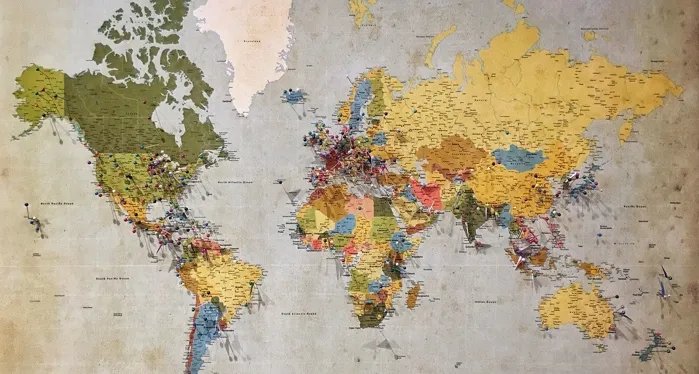
A Translation Quiz, It is: YA Edition
One of my best traits is that I pick up the rules and sounds of a new language very quickly. My toxic language trait is that as soon as it gets too hard or I feel uncomfortable, I quit learning it and start a new one. I feel uncomfortable as soon as I am competent enough to speak with ease but not fluent enough to sound as smart as I do in my native language, English. I realize the only way to get over feeling less than bilingual is to practice speaking the language, and that I am shooting myself in the foot, believe me.
I am what is considered a heritage speaker of Spanish and Portuguese—that is, I was exposed to those languages frequently while I was growing up, with one parent fluent in both and many other close family and friends who spoke them, but I didn’t start learning them formally until my adolescence (Spanish) or college (Portuguese). As my fellow U.S. Americans probably know, foreign language pedagogy is not the greatest here—we learn languages too late, too slowly, and too artificially. That contributes to my unease when in situations where my second or third language are required or recommended.
I have been exposed to enough other languages through years of choir, dance, synagogue, and travel that I can pick out lots of things in quite a few other languages, which is awesome, but again, I shoot myself in the foot by shutting down when it gets too challenging. When you sound like you’re learning, people are patient with you. When you sound like a native speaker but don’t actually have the fluency, people are…probably still patient with you, but internally you have a feeling of panic because WHY AM I NOT AMAZING AT THIS AFTER FIVE DAYS OF DUOLINGO? Isn’t that all it should take?
Anyway, all that is to say that I really enjoy lowkey language play, especially when it comes to books. It’s a lot of fun to browse bookstores and libraries when you travel abroad. It’s also a lot of fun to find books you’re familiar with from home and to see how book covers change.
And titles! Titles change for a number of reasons, not just because they literally need to be in the language of the country they’re published in, but also because language isn’t just literal, it’s also cultural. Idioms and puns don’t always translate. Certain ideas or words might be considered taboo or impolite. Sometimes what’s appealing here isn’t appealing there. There are just as many cultural reasons to change a title as there are linguistic reasons.
Some things don’t change. Twilight is Twilight is Twilight in just about every country on earth. Titles with names of characters are pretty easy to keep the same (or similar, if required for pronunciation). Other times, it’s a head scratcher or knee-slappingly hilarious. Here are some popular YA books that have been published outside the United States, with their foreign titles translated back to English. Can you guess from the context clues which books they are?
Note: I am pretty comfortable with written Latin-origin languages after studying, well, Latin, and also Spanish/Portuguese/French/Italian. German is my next most comfortable language. So this quiz favors those languages. Other languages were re-translated using online translators and/or author websites. Any errors are mine.
Interested in what those titles look like in action? Check out The Hunger Games around the world or take a trip through Neil Gaiman’s ouevre.











